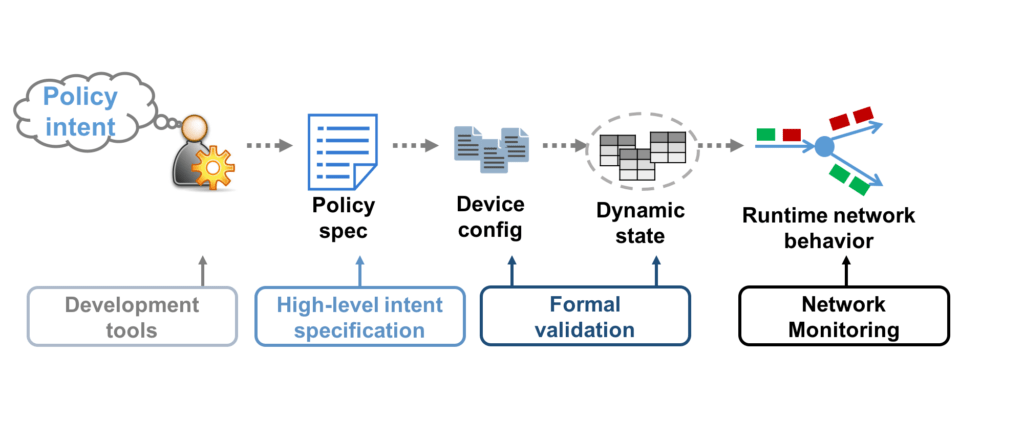The demand for engineers in the information technology (IT) industry, including network engineers, is increasing rapidly.
According to the US Bureau of Labor Statistics (BLS), employment in the IT and computer sectors is expected to grow 11% from 2019 to 2029, significantly faster than the average for all industries.
Of course, the networking industry is no exception. So if you’re thinking about building a career in this field, it’s best to start by answering the question, “Is network engineering easy or hard?”
If answering this question is too difficult for you, let this article help you!
Is Network Engineering Hard?
Yes, network engineering can be not easy, even difficult for some people, incredibly inexperienced and beginners.

However, its difficulty has not stopped it from becoming one of the most popular professions.
The fact is that it still accounts for about 70% of jobs landed by job seekers. Networking is considered one of the best job opportunities, even if it seems the hardest one.
One of the main reasons networking has become one of the most popular professions is that the salaries for engineers in this field are still getting better day by day.
We will discuss it in the next part of the article.
Job Outlook
According to a study conducted in 2020 by Burning Glass, the demand for engineers in this field continues to grow strongly, with an estimated growth rate of 6.5% over the next ten years.
The demand for new network designs and existing networks upgrades is increasing, creating many career opportunities for network engineers.

In addition, the rise and development of healthcare information technology is also a reason for the importance of these engineers.
The job prospects for new network engineers are substantial. The jobs in this field outnumber the applicants, keeping the unemployment rate in the field at 0.
Companies and businesses always look for highly qualified, educated, and experienced IT professionals.
Salaries
The salary for network engineers is higher than the average salary for other occupations, and it will continue to increase in the future.
According to our latest report, the average salary of network engineers in the United States is around $108,215 per year. The lower salary is around $62,702 per year, while these engineers’ top salary is around $162,790 per year.
Of course, several factors will affect the salary an engineer in this field receives, such as:
The Employer
The size of your target company or business will significantly affect the salary they are willing to pay you. It includes whether the company is in the private or public sector.
The Location
The geographical location of your company or business can be crucial to your salary. But, of course, it depends on the economy of that area.
Experience Level
In most cases, the salary you will receive will be commensurate with your level of experience. As a rule, there is a salary difference between a novice engineer and a seasoned professional.
Education Level
Certificates indicate educational level. There is no denying that the more education and certifications you have, the higher the salary you expect to be.
What Does It Take To Become a Network Engineer?
If you want to become an engineer in this field, you will need to prepare yourself for many factors, from degrees, technical skills, professional experience in networking to soft skills.

Here are details on what you need to prepare to land a job in this field.
1. Degree
Most employers of companies and businesses require their candidates to have a bachelor’s degree. Moreover, most potential candidates hold a degree in mathematics, computer science, or a related STEM field.
2. Technical Skills
Suppose you want to gain a job opportunity in networking. In that case, you should understand the technical intricacies of WAN and LAN, Virtual Private Network (VPN), Domain Name System (DNS), Network Security, and Cloud Computing. Employers will greatly appreciate these technical skills.
3. Work Experience
Experience working with networks of all types is beneficial. On-the-job experience is invaluable, but it can be hard to get experience without a job.
So, you equip yourself with working experience on a home-based network as it is still better than nothing. In addition, it will show that you know about the basics of setting up and managing a small network.
Always remember, for this industry, experience is “king.” As a potential candidate, you need to show employers that you have worked in this field before as a network technician. It will help you stand out from other candidates.
4. Soft Skills
The final tip for becoming a network engineer is working on your soft skills, which are not technical or could be taught like technologies.
For example, you will need to have communication skills as you will have to deal with many partners, customers, colleagues, and managers.
In addition, you should also possess problem-solving, negotiating skills, professionalism, time management, and other soft skills as they will help you in interviews, on the job, and eventually getting promotions!
These skills will help you in any role you come across and will help you stand out from the crowd of other potential candidates.
FAQs
Is Network Engineering Harder Than Programming?
Programming, in general, is a bit harder than networking.
Is Network Engineering a Good Career?
Yes. Career opportunities and salaries in this field are all great.
How many hours do network engineers work?
Typically, these engineers work 40 hours per week, Monday to Friday.
Conclusion
In general, you will have a great career if you are determined to pursue this field. The salary, job outlook, and opportunities mentioned above make network engineering a perfect place to land a job.
Thank you for reading! Hopefully, you will soon get a good job in this dream field.
